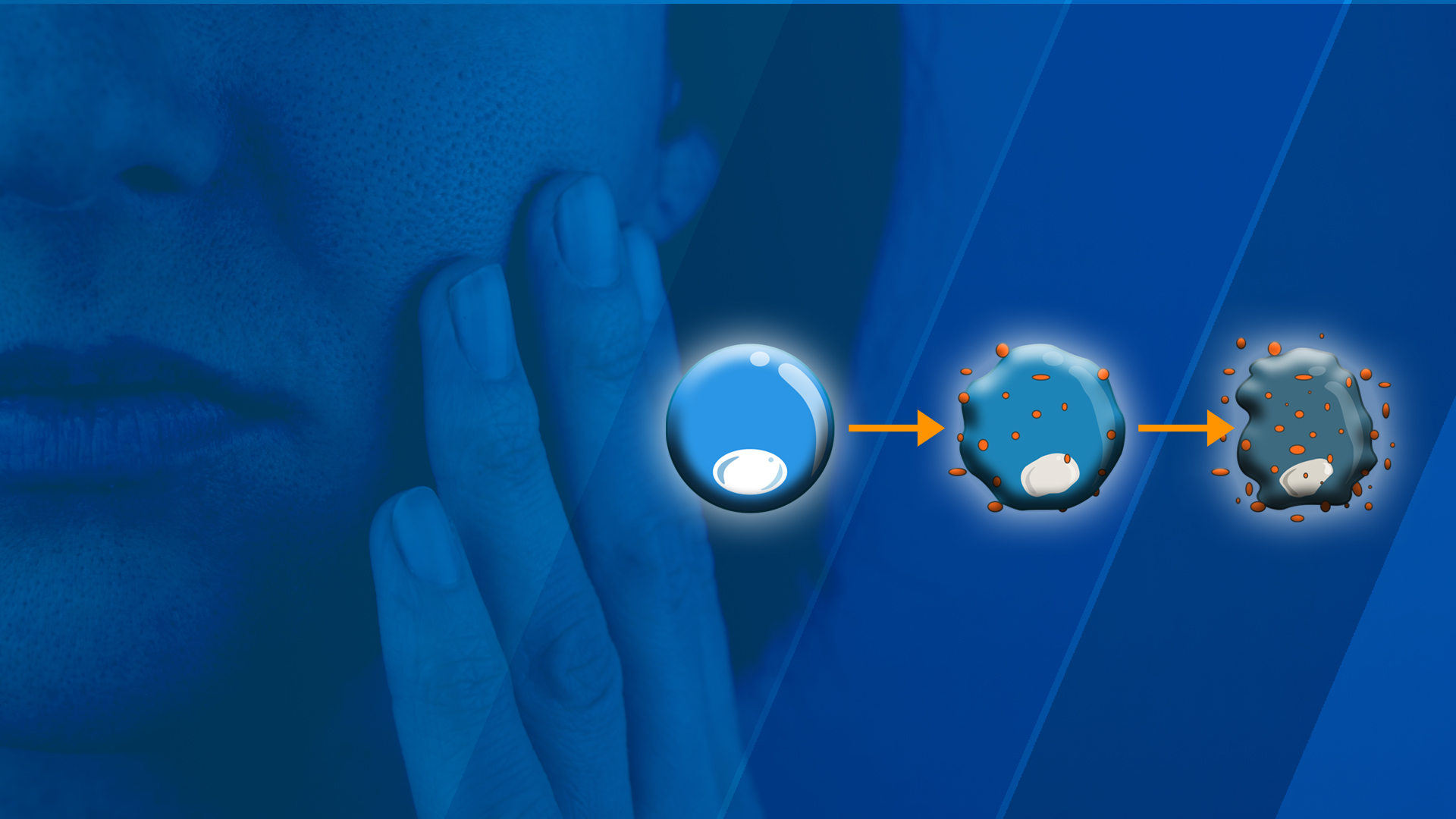Webinar Overview
Electron paramagnetic resonance (EPR) spectroscopy is an innovative tool to detect free radicals in skin and blood plasma. It is a powerful technique that can help us learn more about the redox status, and induced oxidative stress by quantification and characterization of different types of radicals formed in the skin, skin models, skin cells, and blood plasma.
In skin, a critical radical concentration characterized by the reversal of primary ROS (reactive oxygen species) to secondary LOS (lipid oxygen species), leading to increased lipid peroxidation and consequent cellular damage is known. This reversal indicates a change in the redox balance. EPR spectroscopy represents an innovative sensitive tool to assess the antioxidant status by stress response methods in skin and blood plasma. The redox status and oxidative stress investigations were performed in blood plasma samples, and in ex vivo and in vivo skin. These permit evaluating antioxidative supplements and formulations but also studying the influence of oxidative stress, which could be induced by irradiation, lifestyle, or pollution. Cigarette smoke is a good representative of pollution and it is known that it affects the whole body and can induce skin aging. These effects could be shown using EPR spectroscopy but also other methods such as cytokine analysis, resonant Raman spectroscopy, and biochemical assays. New insights about direct smoking and passive smoking will be presented.
Tuesday, March 21, 2023
2:00 PM CET
Key Learning Points
- EPR as a tool to measure reactive oxygen and lipid oxygen species in skin
- Detecting radicals ex vivo and in vivo in skin using spin probes and spin traps
- Examples of redox status and oxidative stress in skin and plasma using EPR
Who should attend?
- Academics and MDs who do any kind of skin and blood plasma research
- General, R&D and Qc/QA managers, and industrial customers from the health and personal care industries involved in development of skin care products
Speakers
Prof. Dr. Martina Meinke
Head of the Center of Experimental and Applied Cutaneous Physiology (CCP)
Charité – Universitätsmedizin Berlin
Prof. Martina. C. Meinke is Head of the Center of Experimental and Applied Cutaneous Physiology (CCP) at the Clinic for Dermatology, Venerology and Allergology. Prof. Meinke studied chemistry at the Free University of Berlin, Germany. After graduation she headed an environmental laboratory until she switched to medical diagnostics. Since 1999, she has been employed by the CCP. After a postgraduate study, she was awarded the title medical physicist in 2006. Since 2007, she is an Assistant Professor of medical physics with the main focus on spectroscopy of blood and skin and electron paramagnetic resonance measurements in skin. She has headed the EPR (electron paramagnetic resonance) spectroscopy group for over 10 years. This method has already been used in several clinical and scientific studies to investigate the formation and characterization of radicals. She also focuses on optical, non-invasive techniques that are widely used for skin examinations.
Prof. Meinke is author of more than 200 peer reviewed publications and numerous book chapters. She is a member of the Ethics Committee of the Charité and a reviewer for the BMBF VIP+ and the DFG.
Dr. Silke Lohan
Deputy Head of the Center of Experimental and Applied Cutaneous Physiology (CCP)
Charité – Universitätsmedizin Berlin
Dr. Silke Lohan was born in Berlin and studied biology at the Free University of Berlin. In 2013, she completed her dissertation (Dr. rer. nat.) in human genetics. She had done her doctoral thesis at the Institute of Medical Genetics and Human Genetics at Charité - Universitätsmedizin Berlin and at the Max Planck Institute for Molecular Genetics. In October 2013, Dr. Lohan joined the team at CCP. Her main interest is electron paramagnetic resonance spectroscopy (EPR), which she applies in vivo, ex vivo and in vitro to study and assess the evolution of radicals in tissues and cells with and/or without the application of stressors. The radicals can be quantified and characterized. In addition, nanoparticle penetration and drug release processes in skin can be studied.
Currently, she is focusing on projects related to the development and clinical application of UV-LEDs. Here, the focus is on the development of a method to determine the redox status in skin and blood. In addition, a measurement method is being established to investigate the effect of pollutants and the protective effect of anti-pollutant products on the skin.
Dr. Sylwia Kacprzak
Market Product Manager
Sylwia Kacprzak received her M.Sc. degree in Chemistry at the University of Maria Curie Sklodowska in Poland. Her EPR career began during her Ph. D. research at the University of Würzburg with a focus on investigations of the electron paramagnetic resonance parameters of bioradicals by density functional methods. Two postdoctoral positions followed at FU Berlin and University of Freiburg, where she gained extensive expertise in CW-EPR and FT-EPR techniques taking advantage of her theoretical background. In 2016, Sylwia joined Bruker as an Applications Scientist.
